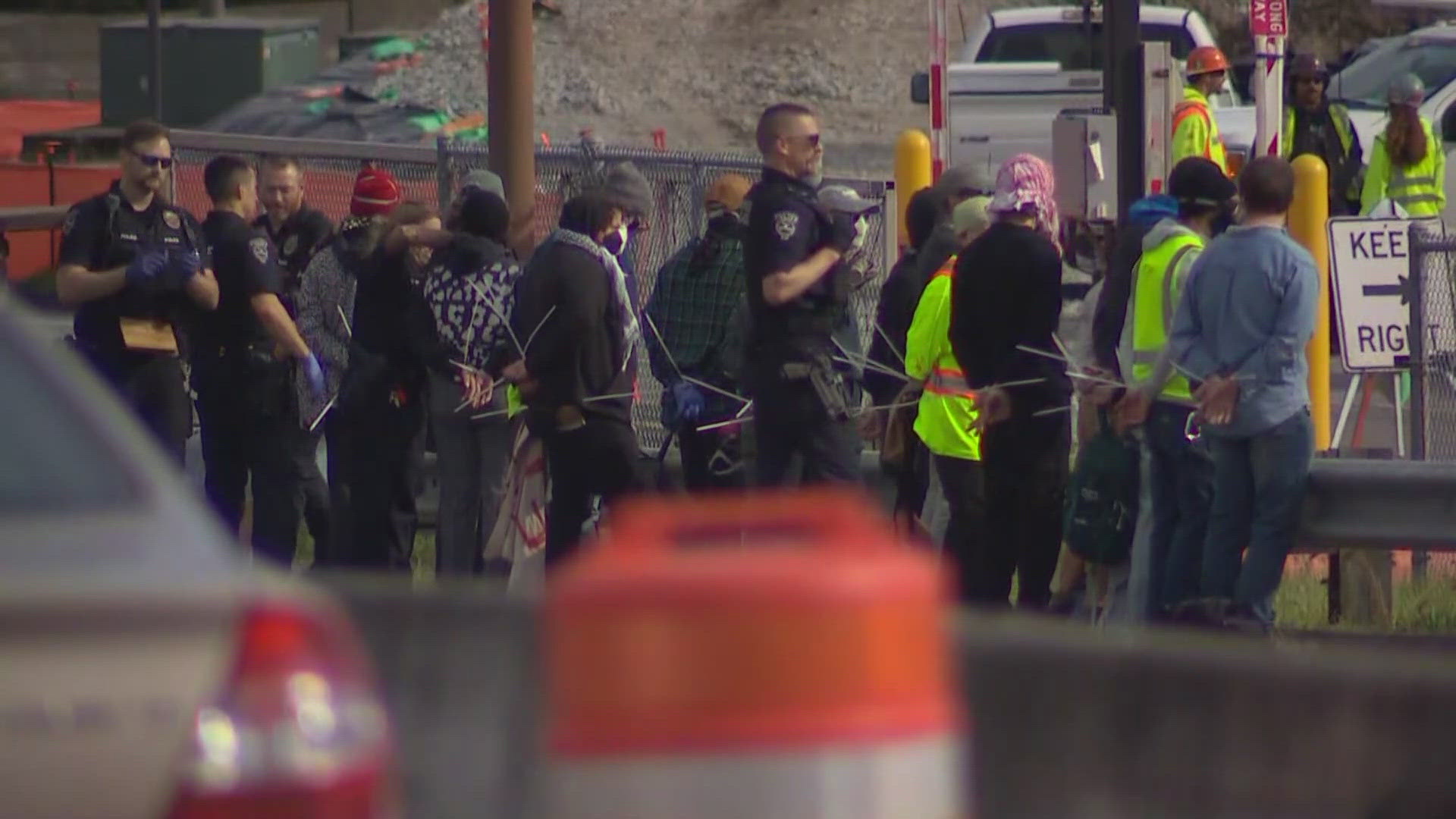SEATAC, Wash. — Dozens of people appeared before a municipal judge at SeaTac City Hall Monday to be arraigned on charges following 46 arrests at a protest at Seattle-Tacoma International Airport (SEA) in April.
On April 15, access to arrivals and departures at SEA was blocked for hours as protestors demanded the United States stop sending weapons or financial aid to Israel. Some of them wore white with red paint to call attention to ongoing deaths in Gaza. The demonstrations came as protestors at other major airports held events on Tax Day, calling attention to money being sent from America to Israel.
In court, defendants requested their faces and names not be recorded or shared. The judge ordered media not to record video of their faces, but refused the request regarding names, saying they are already on public record.
Each defendant faced the judge separately, with most receiving nearly identical comments allowing them personal release with the promise to appear for their next court date and exonerating bond.
SeaTac Senior Assistant City Attorney Cindy Corsilles said those found guilty could ultimately receive up to 90 days in jail and/or fines of up to $1,000. As of Monday, the next court hearings are set for June 11.
These specific charges relate to failure to disperse and disorderly conduct, but the issue has raised some questions about which actions constitute freedom of speech, and whether location plays a role.
Seattle University Assistant Professor of Law Danieli Evans shared some context on the public forum doctrine.
"I want to make it clear that what I'm doing here is describing the law, I'm not making any statement as to my views on the content or substance of the protests or protestors' message, I'm just going to explain what the law is pertaining to protests," Evans said. "The most important thing when it comes to these sorts of protests is the forum doctrine — that your First Amendment rights are different depending on the nature of the forum."
The doctrine makes distinctions between places where people have historically gathered for discourse, such as a park, public sidewalk or town sidewalk; Evans says in those locations, First Amendment rights are at their apex. There is a separate set of rules governing government property that is not traditionally open to speech and hasn't been designated as a location for such.
Evans points to the case International Society for Krishna Consciousness, Inc vs. Lee.
"The Supreme Court upheld a rule prohibiting face-to-face solicitation in airport terminals," Evans said. "It said that doesn't violate the First Amendment because airports are not a public forum or place that has been traditionally open to speech."
Evans said the court determined the purpose of airports is not to create a public forum for speech, but rather to facilitate air travel.
"It suggests that while you might have a right to do face to face solicitation on a public sidewalk, or protest with signs, your right to do that on the highway or in an airport can be curtailed so long as the government's purpose for doing so is reasonable in light of the forum," Evans said.

